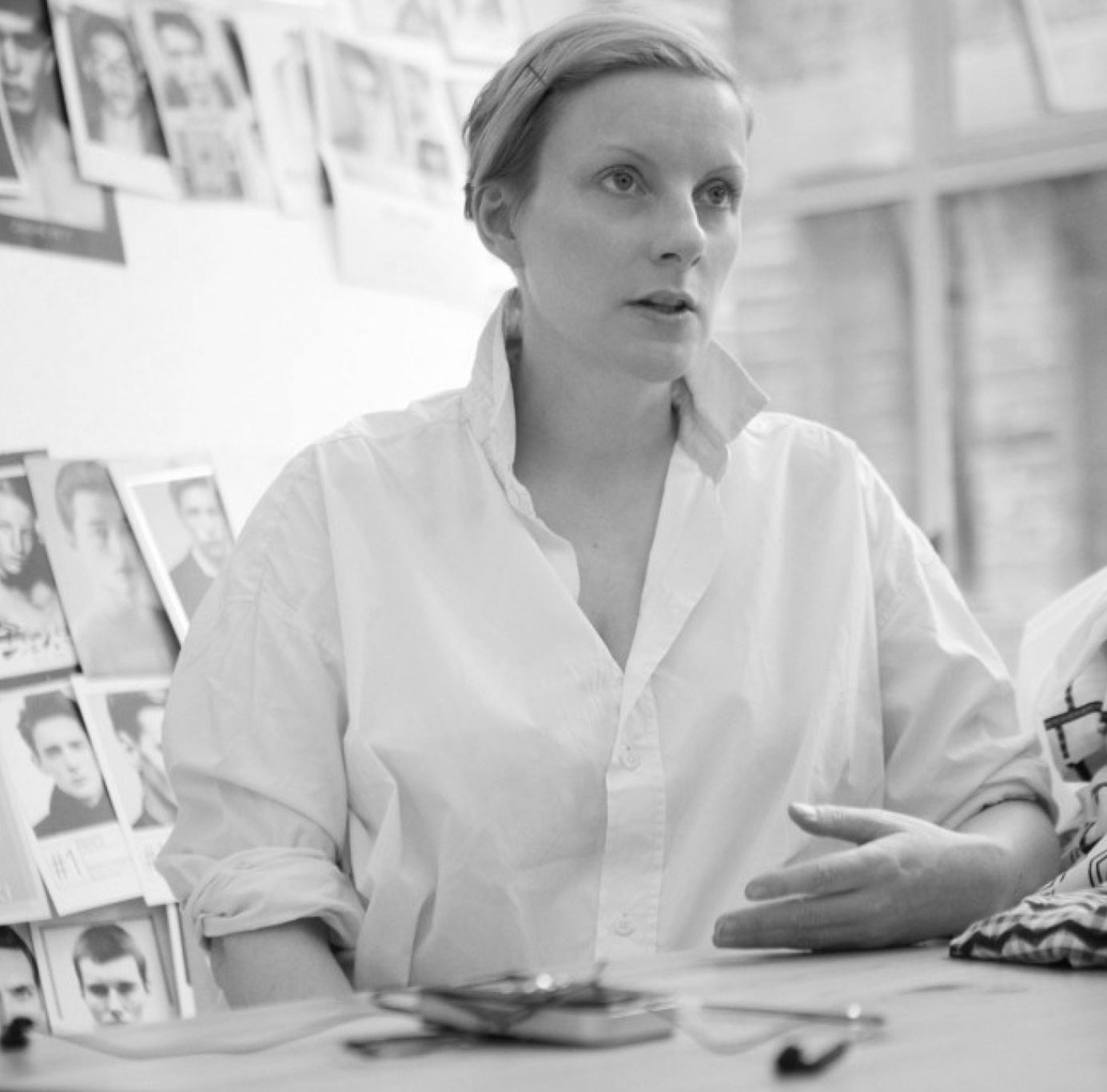
Edit, edit, edit
How British designer Lou Dalton is making her name in menswear
Today, Lou Dalton shows her menswear collection at London Fashion Week and is carried by some of the best retailers in the world, including Dover Street Market, Grenson, and Opening Ceremony.
To learn more, we sat down with Dalton to discuss the path to starting her own label, the struggles of dealing with an international retail landscape, and her relentless obsession with sweating the details.
Could you share how your journey in fashion began and what initially drew you to menswear?

When you left school at 16, were you living with your parents, and how did that decision shape your early career?
How did your parents respond to your decision to leave school and pursue an apprenticeship in fashion?
Was your lack of engagement in school a result of disinterest, or were there other factors at play?

How long have you been designing under your own label, and what milestones have defined this journey?
What challenges did you face when you first launched your brand, and how did you overcome them?
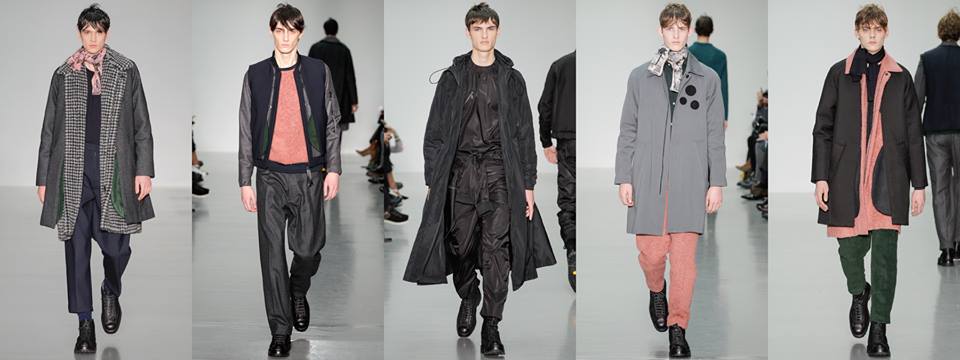
What portion of your business is international, and how have currency fluctuations impacted your strategy?
Have you had to make compromises in design or production following your recent business re-evaluation?
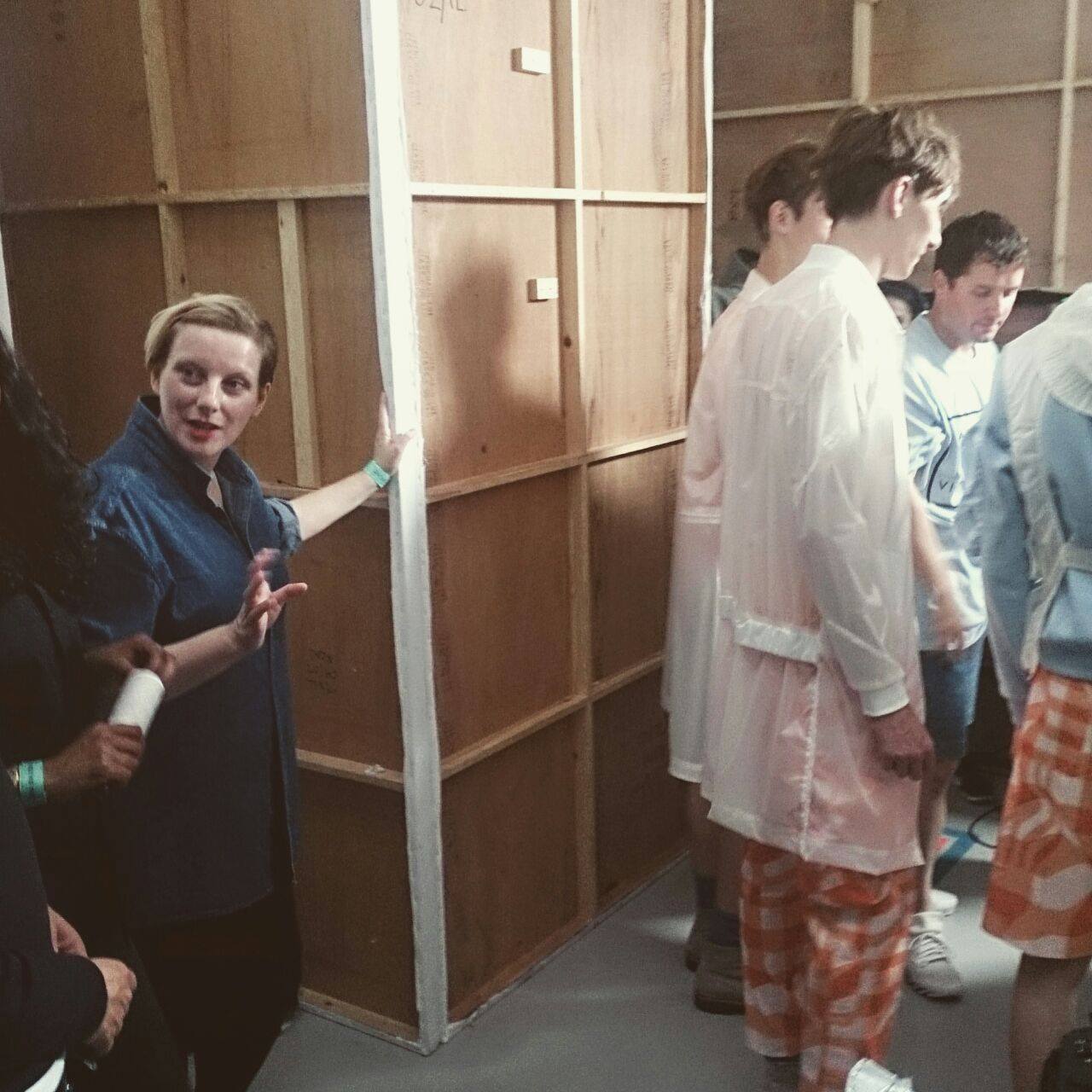
How does the balance between creative ambition and practical pricing influence your design process?
You’ve emphasized the importance of editing your collections. How has this skill evolved over time in your work?
Could you compare the size and scope of your S/S16 collection to your A/W15 collection to illustrate this shift?
Does streamlining your collections make it easier for your audience to identify your signature style?
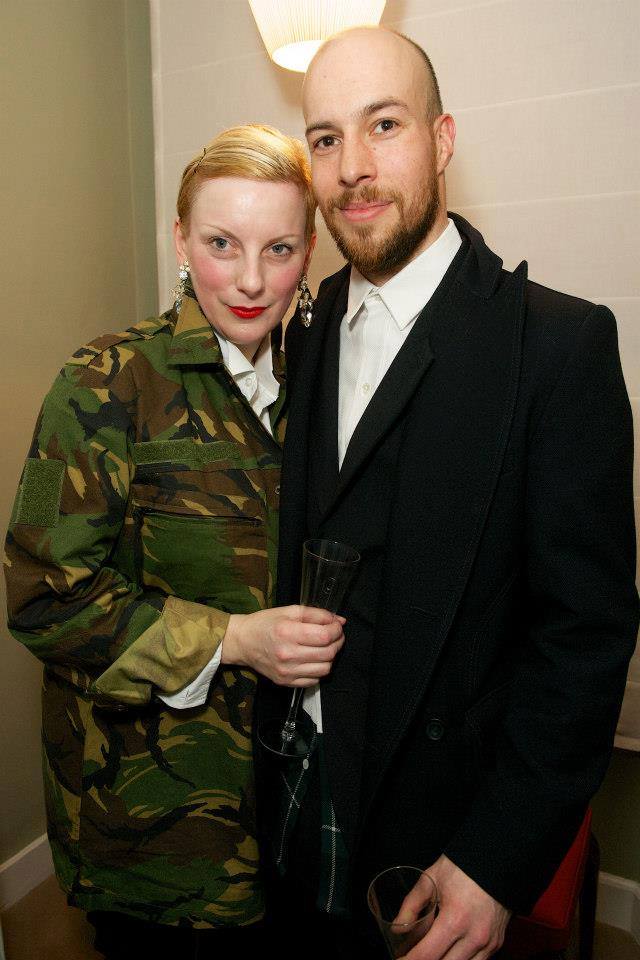
How do you navigate feedback from press versus retailers in shaping your brand and collections?
Reflecting on your career, what advice would you give to a younger version of yourself or aspiring designers?
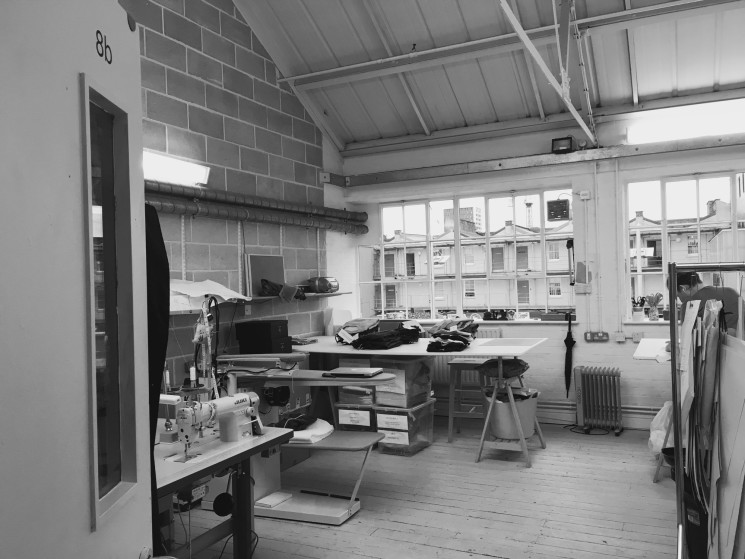
How would you like Lou Dalton to be remembered as a brand, and what legacy do you aim to leave in menswear?
In 2009, a fiery young Brit left a career as an in-house designer in high fashion and put her experience and impressive resumé into a new venture, creating her own eponymous label and catching the attention of the British Fashion Council in the process.
Today, Lou Dalton shows her menswear collection at London Fashion Week and is carried by some of the best retailers in the world, including Dover Street Market, Grenson, and Opening Ceremony.
To learn more, we sat down with Dalton to discuss the path to starting her own label, the struggles of dealing with an international retail landscape, and her relentless obsession with sweating the details.
Could you share how your journey in fashion began and what initially drew you to menswear?
I had always been inspired and obsessed with fashion from an early age. My grandmother had a strong sense of fashion and always had a hat and shoes for every occasion. I was kind of always obsessed with that, but I didn’t really know at the time where I wanted to take my career.
I left school at 16 to work for a bespoke tailor in my hometown in the UK. I come from a bit of a place called Stoke upon Tern. I enrolled in an apprenticeship, and that’s when I was introduced to working predominantly in menswear.
I'm not really a girl-girl. I love a red lip, and I love a heel, but everything I do has always had a very androgynous thing. I’ve always felt very menswear-oriented. I know menswear better than most men.When I enrolled in the apprenticeship, it became apparent that menswear was my thing. I realized then that if I wanted to take [my career] further and make it into something, I would need to go back into education. After three years as an apprentice, I enrolled back in school. I graduated with a Master’s of Design from the Royal College of Arts in London. Upon graduating, I moved straight to Italy, where I worked as a junior designer for brands such as Stone Island and so forth.
When I returned to London, I worked as a jobbing designer from high street to high fashion and worked extensively with Japanese companies. I’d design something and then have to get it produced, and the production had to be within the UK or the British Isles. I was introduced to all the manufacturing support within the British Isles, from knitwear and footwear to ready-to-wear apparel, which is what we do. That was a massive insight, so from there, I started evolving the idea that I’d have my own brand, and then in 2009, I launched Lou Dalton.
When you left school at 16, were you living with your parents, and how did that decision shape your early career?
Yes, I left school with very few qualifications.
How did your parents respond to your decision to leave school and pursue an apprenticeship in fashion?
If I didn’t go to school, my folks would get into trouble, so I just sat through it. I didn’t mainly do very well. I did very well in art textiles and English. In pretty much everything else, I just managed to scrape through.
Was your lack of engagement in school a result of disinterest, or were there other factors at play?
Yeah, when I went through this [apprenticeship] working environment, working for somebody where I saw an end result. It gave me tremendous self-respect; it felt like I was doing something, and it was probably my best education. I gained respect for others; it was on my terms, and I thought I was achieving more.
I began to realize that I wasn’t that stupid and had a gift, and it was really honing in on my strength. Because menswear was at the forefront of what I was being involved with, it was a given that it was what I would do.
I’m not really a girl-girl. I love a red lip, and I love a heel, but everything I do has always had a very androgynous thing. I’ve always felt very menswear-oriented. I know menswear better than most men, probably because I come from an outstanding construction and tailoring background, so I understand the male form very well.
How long have you been designing under your own label, and what milestones have defined this journey?
I’ve been around for a while. Messing around with it. But it was in 2009 that I got support from the British Fashion Council, and people started to take note of what we were doing. There have been peaks and troughs, and I’m no longer the new kid on the block, but it’s [about] maintaining my interests. Sometimes, when things start to dip a bit, you have to look at your business model and think, “How are we going to change that? What can we do to try to keep the interest?” Keep people like [media] coming to see what we’re doing.
What challenges did you face when you first launched your brand, and how did you overcome them?
I realized that the retail industry has changed so much over the last two years; the consumer wants more for his buck, and pricing is complex for specific brands. Even on the top end, people like Dries Van Noten and Raf Simons have had to lower their pricing. When you’re a brand that doesn’t advertise, you can’t warrant the garment – a shirt or something – for £300 [about US$600]. That’s a lot of money.
You have to be careful, especially when the exchange rate is so crippling, and we’ve suffered at times because of that. So, I’ve become very aware of how I can change the dynamic of Lou Dalton so that we can hopefully bring these stores back on board without changing who we are and being very clear about our aesthetic.

What portion of your business is international, and how have currency fluctuations impacted your strategy?
It’s fair to say we’ve got a sound footing in the door internationally. This season alone [SS16], we’ve just finished with Paris. We saw [growth] more, especially in Japan and the Asian markets.
A great example is last season and the A/W 15 collection. I was very proud because it felt like we finally started to shape up who we were as a brand and what I stood for, which was [being] obsessed with details. I’m obsessed with the finish. I’m obsessed with construction and the engineering behind a garment and how that reflects on the male form. But it was too expensive. We had a great store in Japan that we were selling to along with Dover Street Market, but it was too expensive for them, and they took a season back, and it was crippling. This season, they came back because we re-evaluated everything.
Have you had to make compromises in design or production following your recent business re-evaluation?
I’m obsessed with cloth, and I would happily produce everything on these four rails with £50/m of fabric, but that’s not realistic. I have to spend time sourcing something that can do the same job as that beautiful piece of cashmere and look as impressive as that for something like £10/m, which means that I can fulfill my aesthetic without compromise because the minute I have to do that I’m just going to pack up and say bugger it.
I might as well go home now and not do it anymore because I don’t want to give you just market fodder. I want to provide you with something beautiful that you want to be inspired to wear and that you want to look at every season. You want to log on and see what Lou Dalton is doing every season, and that’s why it’s essential.
I want to be in here for the long haul, and I’ll do everything and fight tooth and nail to keep it going, so I had to [re-align the pricing with the collection]. It was a challenge, but it was one that I was prepared to do, and I don’t feel like I’ve sacrificed anything along the way.

How does the balance between creative ambition and practical pricing influence your design process?
When we started the oversized coats here, they had many internal pockets, everything but the kitchen sink. What I learned from this is I start with the design that I want, and what I have to do then is edit and edit so that the exterior looks exactly like that sketch on the wall. Still, I streamline the internal construction so as not to compromise the design because I just don’t want to have to do that.
I don’t want to cut down on the Lou Dalton aesthetic or what I believe is our strength. Still, I appreciate that sometimes I have to carefully edit so we can produce the same jacket in three different fabrics and tell three different stories.
You’ve emphasized the importance of editing your collections. How has this skill evolved over time in your work?
This is the first season we did edit because I didn't edit anything with A/W – as much as it will go down as one of my favourite collections of all time. We ended up with six racks of clothes, ridiculous options, and, as a buyer, you’ve got too much to buy into. This season, it was really edit, edit, edit.
Could you compare the size and scope of your S/S16 collection to your A/W15 collection to illustrate this shift?
In this collection, we doubled up on lots of things. A/W was something like 80 to 90 pieces, and then in this collection, it was like 70 pieces. It was much less and felt far more focused, honing in on what has been selling for us.
Does streamlining your collections make it easier for your audience to identify your signature style?
Absolutely, we get that feedback. I don’t change the blocks every season. I don’t redesign the wheel regarding the actual shirt block or the trousers block because we are a small brand, so you do want to build a client base where you become familiar. You want that continuity, so I try to hone in on that.

How do you navigate feedback from press versus retailers in shaping your brand and collections?
Retail is key more than anything. I totally respect the press, and we need them on board. The minute the show has gone out, we all live to see what the review is on Style.com [now Vogue.com]. It’s the first thing folks look at. Sometimes, you do feel it can make or break you. The reviews are key because the buyers tend to look at them. Still, the buyer will keep Lou Dalton in business, not the press, unfortunately.
Reflecting on your career, what advice would you give to a younger version of yourself or aspiring designers?
You can always say, “Oh, if only,” but you must make mistakes to come out on the other side.
Part of me is that when people are doubting you and are quick to judge what you do, you get a bit between your teeth to prove them wrong. I feel relevant as a brand and that we have something different to say.
The day I feel that has stopped and I have to dilute [what I do] so that it’s unrecognizable, I’ll get a full-time job and do it for Gap, for God’s sake. If I rip something back with no heart and soul, I might as well be a jobbing designer.
I feel that having a bit of a knock sometimes can bring you back to where you need to be and make you hone in on what and who you are, and I think that’s precisely what we’ve done this time.

How would you like Lou Dalton to be remembered as a brand, and what legacy do you aim to leave in menswear?
I want it to be a successful, ready-to-wear menswear line, to be here when I’m not here. To have that legacy. Great attention to detail and fabric, and something that the man on the street would want to wear.
I believe there is a market for somebody like Lou Dalton and what we do to own it. It’s a great fabric with great detail at a great price – not cheap, but good value. You’re getting value for money, which is really important.
